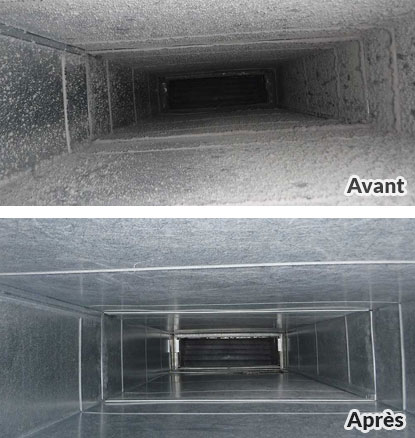Coronavirus: is there a correlation with air quality and respiratory viruses?

April 7th, 2020
There’s little else on the minds of populations around the world right now than the Covid-19 pandemic and the health threat that it poses to people of all ages and backgrounds. It’s easy to feel helpless and at the mercy of the strategies and tactics put in place by our governments and local health officials, but what if there were more we could do to keep our homes healthy?
A recent HuffPost article “You are more likely to get Coronavirus where the air is polluted” French article only summarizes numerous studies and findings that show other pandemics including the Spanish Flu of 1918 and the SARS epidemic of 2002 were made worse in some areas of the world due to increased air pollution. It also makes reference to a study conducted in Italy which suggests that there is a direct relationship “between airborne pollutant concentrations and the incidence of viral infections during pollution alerts.”
While we’re practicing physical distancing and staying at home, it might feel like we’re trapped in the air around us, fearing the virus droplets it might contain. Our team of air experts want to remind our clients and readers that homeowners have the opportunity to take control over their indoor air quality, and that taking measures to increase the quality of air in our homes can help us add another layer of protection against the rapidly spreading Coronavirus.
Let’s take a look at what we know about respiratory health and indoor air quality.
Poor indoor air hurts everyone and can have lasting health impacts for some. The Canadian Lung Association points out that “People with asthma, allergies or lung disease can be greatly affected by poor indoor air quality. Poor indoor air quality can affect development in children and has been linked to lung disease later in life.”
How? Pollution plays a major role in the spread of viruses by weakening our respiratory tracts and taking away the natural protection that the tract is meant to provide. Harmful air particles also weaken our immune systems by causing inflammatory reactions, and it’s even suggested that chemical pollutants can change the structure of viruses themselves and make it easier for them to penetrate the mucous membranes and to multiply. Scary stuff.
Common symptoms of exposure to poor indoor air include:
- Headaches, fatigue, and shortness of breath
- Worsening allergy and asthma symptoms
- Sinus congestion, cough, and sneezing
- Eye, nose, throat, and skin irritation
- Dizziness and nausea
With what we know about the Coronavirus and how it affects people, we definitely don’t want to add any of the above mentioned health conditions to the mix. And the fact that mould, mildew and high humidity in the home are the major culprits of poor indoor air quality, we can safely conclude that taking steps to increase our indoor air quality can help keep us stronger and more ready to fight the Coronavirus should we be exposed.
Air quality plays a crucial role in the spread of viruses and we have no reason to believe that the Coronavirus would act any differently.
Avoiding poor indoor air quality is another way we can fight the virus in our own homes.
So what can we do?
As we explained in our post “The importance of cleaning your ducts regularly” airborne particles floating around in the air including flakes of dead skin, hair, pet dander, microorganisms from cat litter (toxoplasmosis), pollen, mold spores, fungi, and even rodent feces collect in your HVAC ducts.
Combined with humidity, your ducts become “the perfect breeding ground for bacteria, mold, mites and allergens.” If you’re unable to have your ducts cleaned soon, at the very least we recommend removing your floor vents and hand wiping as much of the duct as you can safely reach, and changing your furnace filter.
In addition to cleaning your air ducts and filters, we also offer 10 Simple Ways to Ensure the Air Quality of your Home. Check them out and start fighting the Coronavirus with another layer of protection in your home today.
Note: the information contained in this blog article is meant for reference only and should never replace advice given by a medical doctor or the instructions from your local health authorities when it comes to dealing with Covid-19.









